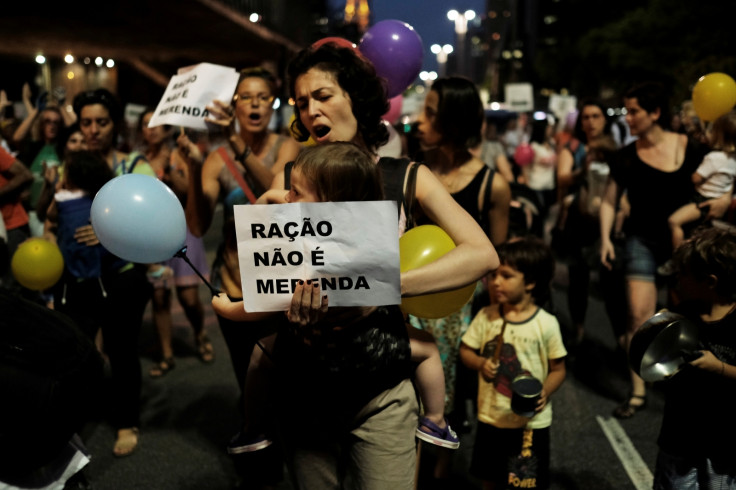Sao Paulo wants to give hungry schoolchildren processed 'dog food' pellets
The plan has already been approved by the mayor, who described the pellets as "blessed food".
The mayor of a Brazilian city has been criticised after announcing plans to give schoolchildren processed pellets to help combat malnutrition.
Sao Paulo Mayor Joao Doria has recommended that the pellets, which some have nicknamed 'dog food' due to its resemblance to animal feed, be used in schools across the city.
Known officially as "farinata", the pellets are made from leftover or nearly expired food and can be eaten on its own or added to meals to give an additional nutritional boost.
Mayor Doria says he has already approved the use of the pellets in schools, but it is unclear how many will receive the supplement.
Some critics have staunchly opposed the use of the processed food among school children.
Speaking with AFP, Vivian Zollar, a spokeswoman for the Region Council on Nutrition, says the plan is not a long-term solution for a city marked by a stark contrast between rich and poor. "When we offer pellets to lower income people to eat, we are only exacerbating the inequality in society."
Zollar also claimed that the plan "flew in the face of advances made in recent years in the field of food security".
The scheme has gained some support from religious leaders in the city. High-profile cleric Cardinal Odilo Scherer has said the plan's critics are out of touch: "It offends me when people call this dog food, and say it is degrading to the poor. It is degrading to deny them food."
The creators of 'farinata' say their product is a useful weapon in the fight against hunger in Brazil. A spokesperson for Platforma Sinergia, a not-for-profit charity, claimed that the food can help prolong the life of nearly-expired food for two years.
According to Oxfam, Brazil has made giant strides in reducing malnutrition in the country. A recent report stated that between 2003 and 2009 the amount of people living in hunger was reduced by 20 million people, mainly thanks to 'pro-poor' policies introduced during the presidency of Luiz Inácio Lula da Silva, known popularly as "Lula".























